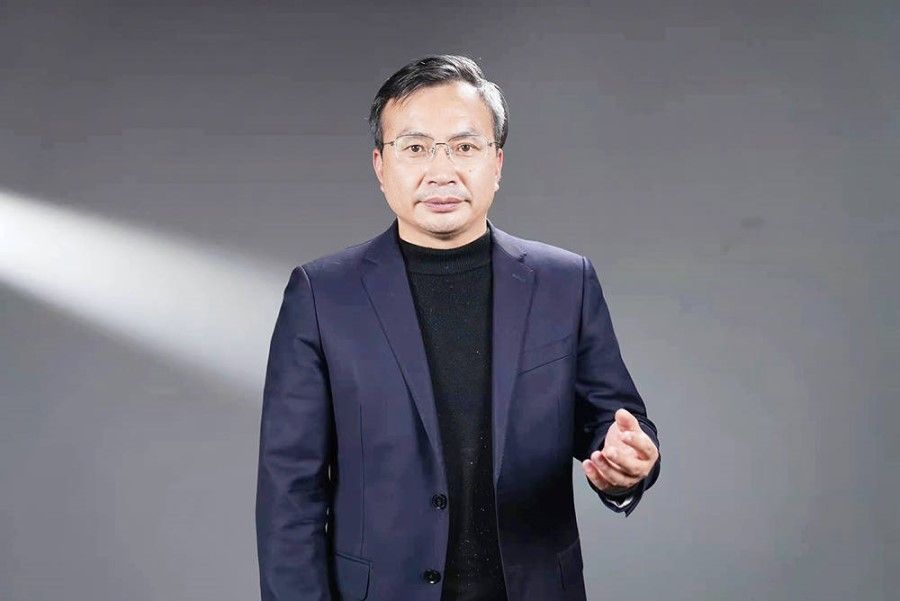China's youths are feeling the pressure from low wages

"Many young people now are really ridiculous. When they run out of money, they blame their parents for giving them too little, or companies and bosses for paying them too little. Very few would admit that their low salary is due to their professional shortcomings or lack of capability."
These words pushed Deng Haiqing, deputy general manager and chief investment officer of AVIC Fund, to the top of Weibo's searches. Many Chinese netizens were appalled and outraged by his denigration of young people.
A true-blue elite
Deng has an impressive professional background - he is a true-blue elite in Chinese society with a PhD in finance from Fudan University, and is doing his postdoctoral research with the People's Bank of China.
He was a visiting professor with the Renmin University of China and a distinguished lecturer at Beijing Normal University, with research areas including China's macroeconomy, government policy, monetary policy, foreign macro perspective, domestic and overseas financial markets. He has researched on asset allocation in bond markets, stock markets and commodities, and written books including The New Financial Situation (《金融新格局》), Interest Rate Marketisation: Breaking Through China's Debt Difficulties (《利率市场化:突围中国债务困局》), and The End of the Bubble (《泡沫的终结》).

Prior to his current position as chief investment officer of AVIC Fund, Deng worked for Sinolink Securities in the macro strategies department, Hongyuan Securities as chief fixed income analyst, Kyushu Securities as global chief economist, AliResearch as vice-president, and wallstreetcn.com research institute as dean and chief economist.
In 2013 and 2014, he was ranked among the top analysts by financial magazine New Fortune; and in 2016, he was named chief economist of the year by yicai.com. He is also a columnist for Shanghai Securities Journal, Caixin and the Chinese language online edition of Financial Times, and previously worked with the Shanghai municipal government for many years.
"Our salaries are benchmarked against that of Vietnam, but our productivity is chasing after that of the UK and the US." - Chinese netizens
Indeed, Deng has a stellar record and notable achievements in politics, academia and business - such success in one field alone would be deemed outstanding for the average person. So Deng may have been immersed in the top echelons of society for too long when he made his comment, and did not regard young people as living individuals but as human resources, and even led to his comparison of the "cost-effectiveness" of labour.
Unfair comparisons
During an interview ahead of this year's inaugural Changbai Mountain Summit (长白山高峰论坛), Deng said that for many young people in China, "someone in Thailand or Vietnam could take on the little work you do for half of your wages".

His condescending and cold attitude sparked resentment among netizens. They criticised: "One could get several mansions in Thailand and Vietnam for the same price."
"Is the cost of living in Vietnam and Thailand as high as ours? Our salary is really low."
"Making comparisons with Vietnam and Thailand? Why not with the US?"
"Our salaries are benchmarked against that of Vietnam, but our productivity is chasing after that of the UK and the US."
Indeed, a single pebble can make waves - many posts hitting back at Deng began to trend. The many responses show that Deng and netizens are at odds because netizens do not believe that capability is the only factor affecting salaries. High prices of goods and housing, employment opportunities, family background, and the job industry are factors affecting income, and one should not simply compare salary figures.

Furthermore, the "cost-effectiveness" of labour was taken fully from the perspective of companies and managers, and disregarded the feelings of young people.
Quoting the statistical concept "correlation does not imply causation", netizens explained that even if ability and salary are correlated in a linear regression model, there is no evidence of a cause-and-effect relationship between the two variables. An expert such as Deng has intentionally blurred the line between correlation and causation, and his logic is seriously flawed.
Other netizens believe that the opportunities available to today's youths have shrunk since the days when Deng was younger. College graduates in the 1980s faced an era of rejuvenation and talent shortage. Educated youths were highly valued and promotions were generally easier to come by.
Although living standards were low, it was the best time for personal development. In contrast, climbing the corporate ladder has become more difficult now, be it for bachelor's, master's or doctoral degree holders. Many capable and highly educated youths find themselves struggling to get promoted.
A post on Chinese forum website Zhihu wrote that some senior executives reached high positions not because of their capabilities or comprehensive qualities...

A post on Chinese forum website Zhihu wrote that some senior executives reached high positions not because of their capabilities or comprehensive qualities but because they joined the workforce at an opportune time and were handed key responsibilities upon graduation. In less than two years, they were able to assume a managerial role to hone their skills and often took the lead in solving tough challenges, which naturally propelled them to higher positions where they continued to improve professionally. If today's college graduates were given the same opportunities, they could grow by leaps and bounds, and achieve greater things.
The post further wrote: "Many successful people such as Mr Deng Haiqing had a harsh life growing up and appear to have overcome many tough hurdles before arriving at where they are today. So, they mistakenly believe that they owe their success to their hard work and capabilities. But in fact, no one's success can be separated from the reaches of time and environment."
It added, "Bringing these senior executives back to the 1980s and 1990s when they had just stepped into the workforce and comparing them with the college graduates today, they would certainly fare much worse."
In reality, few youths are "lying flat" (躺平) - many are silently slogging away, in search of the few good opportunities.
Few words, huge backlash
Although Deng's comment was made in the context of an hour-long interview, the remark that drew the ire of young netizens was only less than a minute long.
The reason for such a huge backlash over a few words is perhaps because Chinese youths are extremely dissatisfied with the current situation and the immense social pressures. In reality, few youths are "lying flat" (躺平) - many are silently slogging away, in search of the few good opportunities. By correlating ability and salary, Deng has in fact struck a nerve with many people.

A netizen wrote: "Times are extremely hard for the younger generation and society is constantly looking at them in a condescending manner, blaming them for being picky and unmotivated, for 'lying flat', for being underqualified, being reluctant to have children or buy houses... It's just lofty talk without regard for the lives of ordinary people. How infuriating!"
According to a Zhaopin.com 2022 survey on the employability of college students, the average monthly salary of graduates who have already received job offers and signed employment contracts with employers reached 6,507 RMB (US$958). Only 10.7% received a monthly salary exceeding 10,000 RMB, while 6% took home less than 3,000 RMB.
Based on the average monthly salary of 6,507 RMB, Chinese youths can hardly save money from their wages once living expenses and the cost of various loans are taken into account, not to mention the exorbitant housing costs in first- and second-tier cities, which is a massive burden for many people.
In future, the current generation from one-child families would still have to shoulder the responsibility of taking care of their aged parents. Under such circumstances, it is not difficult to understand why Chinese youths vented their frustrations on Deng.
This article was first published in Lianhe Zaobao as "年轻人工资低是能力不够么?".
Related: Why Chinese youths are not spending | China's 'little emperors' of the 1980s are now the most burdened generation | Post-00s youths want to rewrite workplace norms in China | Depression among China's college students reveals anxieties about jobs and Covid | Why China has too many graduates and not enough skilled workers | Record 10.76 million Chinese university graduates face bleak job market and struggling economy | 200 million Chinese are in flexible employment. Is this their choice?
